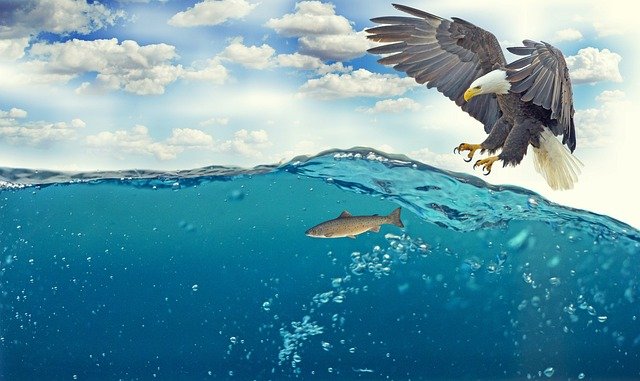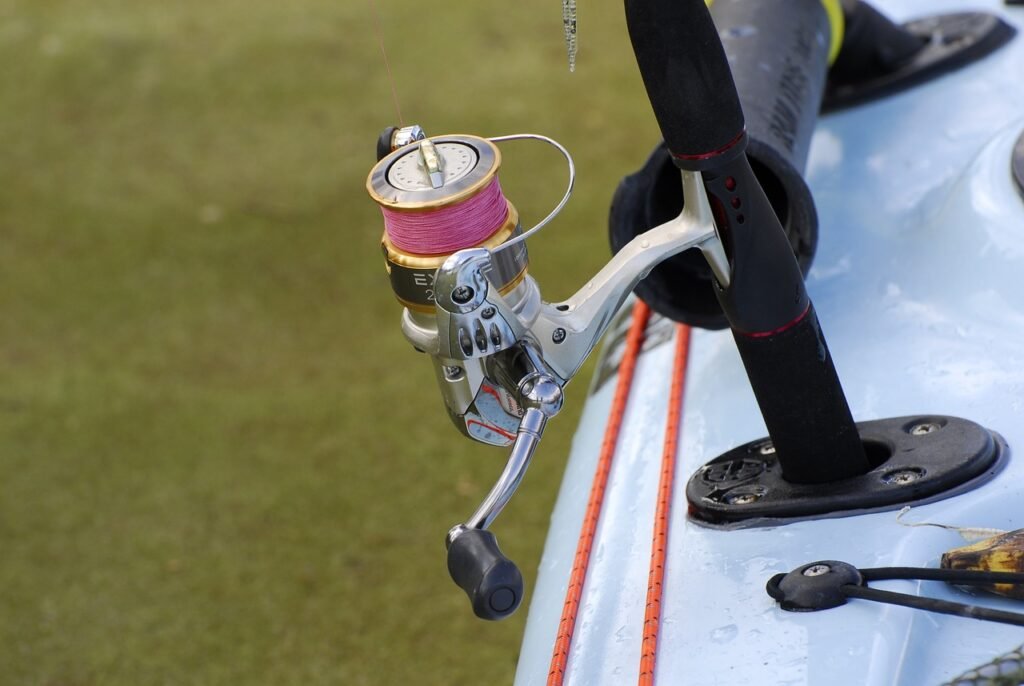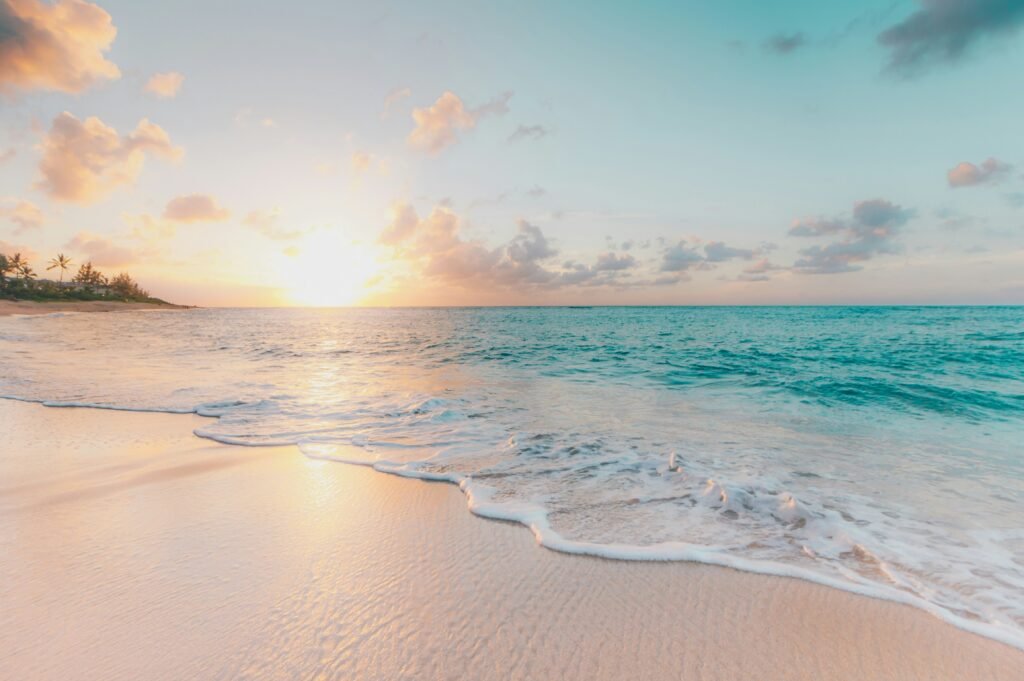Saltwater fishing has long been a beloved pastime for anglers around the world. It’s a sport that combines the thrill of the catch with the tranquility of the open water. But as with many natural resources, our oceans are not infinite. Overfishing, pollution, and habitat destruction have all taken their toll on marine ecosystems. This is where the role of conservation becomes crucial.
A Day on the Water
Imagine a warm, sunny morning as you set out on your boat. The horizon stretches endlessly before you, the waves gently lapping against the hull and the salty breeze rustling through your hair. The sky is a brilliant blue, dotted with the occasional fluffy white cloud, promising a perfect day ahead. As your line hits the water, there’s a sense of anticipation and excitement. Will today be the day you catch that prized fish?
The gentle rocking of the boat and the distant call of seagulls add to the serene atmosphere. For eco-conscious anglers, this excitement is paired with a deep respect for the ocean and its inhabitants. They understand the importance of preserving marine life and practice sustainable fishing methods. As you wait patiently, the beauty of the ocean unfolds around you, from the playful dolphins in the distance to the vibrant coral reefs below, making every moment on the water an unforgettable experience.
The Importance of Conservation
Conservation in saltwater fishing is about more than just preserving fish populations. It’s about maintaining the health of entire marine ecosystems, which are delicate and interconnected networks. Healthy oceans support not only fish but also countless other species, from tiny plankton to majestic whales, and even the microscopic organisms that form the foundation of the oceanic food chain. When we practice conservation-minded fishing, we’re helping to ensure that future generations can enjoy the same experiences we do today, such as the thrill of catching a fish or simply marveling at the biodiversity of marine life. Additionally, sustainable fishing practices contribute to the stability of coastal communities that rely on the sea for their livelihoods, fostering economic resilience and cultural heritage. Conservation efforts also play a crucial role in combatting the effects of climate change, protecting marine habitats like coral reefs and mangroves, which act as natural barriers against storms and erosion. By prioritizing conservation, we are making a commitment to the long-term health and sustainability of our planet’s oceans.
Sustainable Fishing Practices
Conserving our marine environments starts with sustainable fishing! Imagine casting your line, knowing you’re protecting fish populations and their habitats. Techniques like catch and release, using barbless hooks, and sticking to size and bag limits aren’t just rules—they’re ways to keep our oceans thriving. By following these practices, anglers can enjoy their passion while safeguarding the future of our precious marine life. Let’s fish responsibly and ensure the thrill of the catch for generations to come! 🌊🎣
The Role of Marine Protected Areas
Marine Protected Areas (MPAs) are essential for conservation. These designated zones limit or ban fishing and other activities to safeguard marine life and habitats. Research shows that MPAs can boost fish populations and create healthier ecosystems. By providing a safe haven for marine species, MPAs allow overfished populations to recover and thrive. They also help preserve biodiversity, protect critical habitats such as coral reefs and mangroves, and enhance resilience against climate change. By backing the creation and upkeep of MPAs, anglers can significantly contribute to conservation efforts, ensuring sustainable fisheries for future generations and maintaining the health of our oceans.
The Science Behind Conservation
Marine biologists and sustainability advocates work tirelessly to understand the complex dynamics of marine ecosystems. Their research provides the foundation for effective conservation strategies. By studying fish behavior, migration patterns, and population dynamics, scientists can develop guidelines that balance the needs of both anglers and marine life.
These experts utilize advanced technology such as satellite tracking and underwater drones to monitor the health of marine environments. They also collaborate with local communities and policymakers to implement practices that promote sustainable fishing and protect endangered species. Furthermore, by studying the impacts of climate change and pollution on marine habitats, scientists aim to create solutions that mitigate environmental damage and preserve biodiversity for future generations.
The Impact of Overfishing
Overfishing is a huge threat to our marine ecosystems. When we catch fish faster than they can reproduce, their populations start to decline, sometimes even collapsing. And it’s not just the fish we’re targeting that are affected; the whole ecosystem feels the impact. Predators lose their food source, throwing the balance of the ocean out of whack. That’s why conservation efforts are so important—they aim to prevent overfishing with regulations and sustainable practices.
A Personal Commitment
Conservation isn’t just about following rules and regulations; it’s about a personal commitment to protecting the ocean and ensuring its vitality for future generations. Eco-conscious anglers understand that their actions have a direct impact on the environment, and they take this responsibility seriously. By making mindful choices, such as using eco-friendly gear, practicing catch and release, and reducing plastic waste, they contribute significantly to the health of marine ecosystems. This dedication goes beyond the immediate benefits, fostering a deeper connection with nature and promoting sustainable fishing practices that can be passed down to future generations.
Community Involvement
Conservation is most effective when it’s a collective effort that brings together various stakeholders. Anglers, marine biologists, sustainability advocates, and policymakers all have a vital role to play in this endeavor. By joining conservation organizations, participating in local clean-up events, and spreading awareness through social media and community outreach, individuals can make a significant impact on preserving our marine environments. Community involvement fosters a sense of unity and shared purpose, creating networks of support that amplify individual efforts. Collaborations between different groups can lead to innovative solutions and more comprehensive strategies to tackle environmental challenges, ensuring that our oceans remain vibrant and thriving for years to come.
The Future of Saltwater Fishing
The future of saltwater fishing depends on our ability to balance enjoyment with responsibility. By embracing conservation-minded fishing practices, supporting scientific research, and advocating for marine protection, we can ensure that our oceans remain vibrant and bountiful for generations to come. This involves not only adhering to regulations and guidelines but also actively participating in conservation programs and initiatives. Preserving the delicate ecosystems that support marine life is crucial for maintaining the biodiversity and health of our oceans.
Your Role in Conservation
As an angler, you have a unique opportunity to contribute to conservation efforts. By staying informed about the latest sustainable fishing practices, making eco-friendly choices, and encouraging others to do the same, you can help protect the ocean for future generations. This means using gear that minimizes environmental impact, avoiding overfished species, and respecting size and bag limits. Additionally, participating in community clean-ups and supporting organizations dedicated to marine conservation can amplify your impact.
Call to Action
If this topic resonates with you, please follow and subscribe to our page for more articles and tips on sustainable fishing practices. We regularly share updates on the latest research, innovative conservation techniques, and stories of successful preservation efforts from around the world. Together, we can make a difference and ensure that the joys of saltwater fishing endure for years to come. Your involvement is key to fostering a culture of responsibility and stewardship within the fishing community, ensuring that both marine ecosystems and fishing traditions can thrive in harmony.
—
By sharing our love for saltwater fishing and our commitment to conservation, we can inspire others to join us in protecting the ocean. So next time you cast your line, remember that each fish you catch is part of a larger story—a story of balance, respect, and stewardship. Let’s keep writing that story together.




Barınaktan, sokaktan ya da gönüllülerden sahiplendirilen sevimli dostlarımız sahipleniyorum.com’da sizi bekliyor. Hayvanseverler için hazırlanan modern arayüzü ve hızlı filtreleme seçenekleriyle aradığınız dostu kolayca bulun.